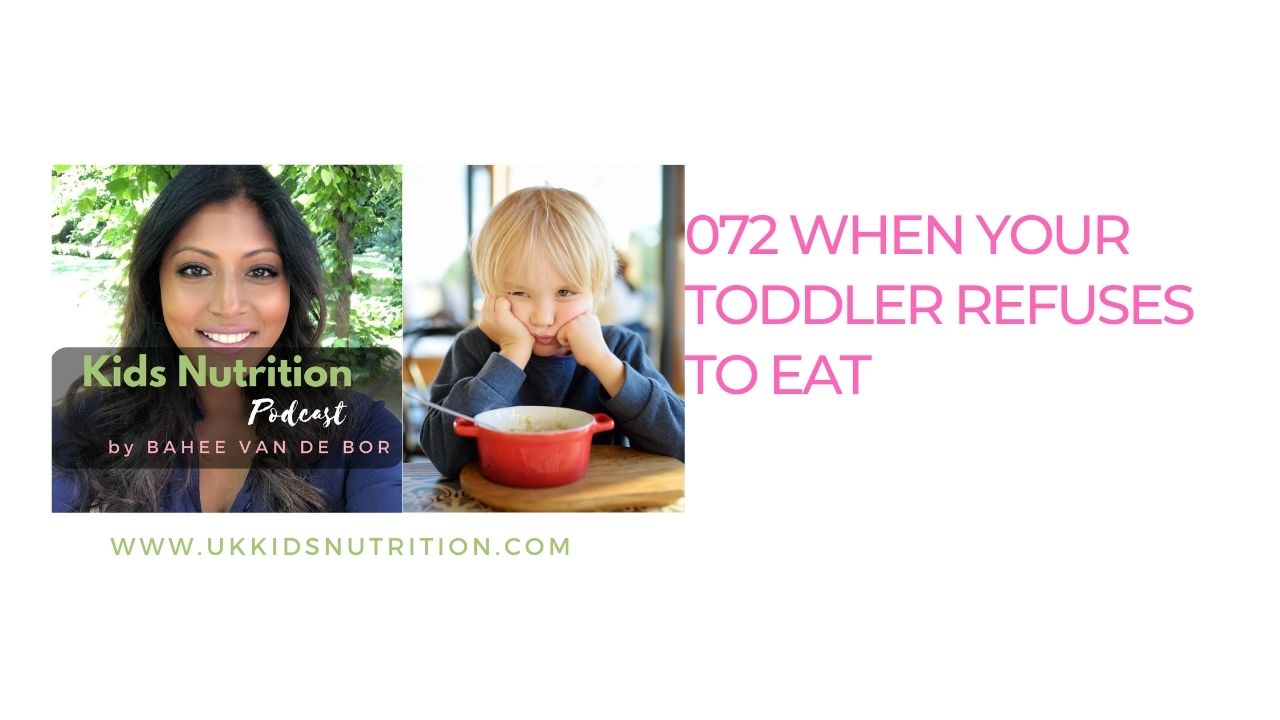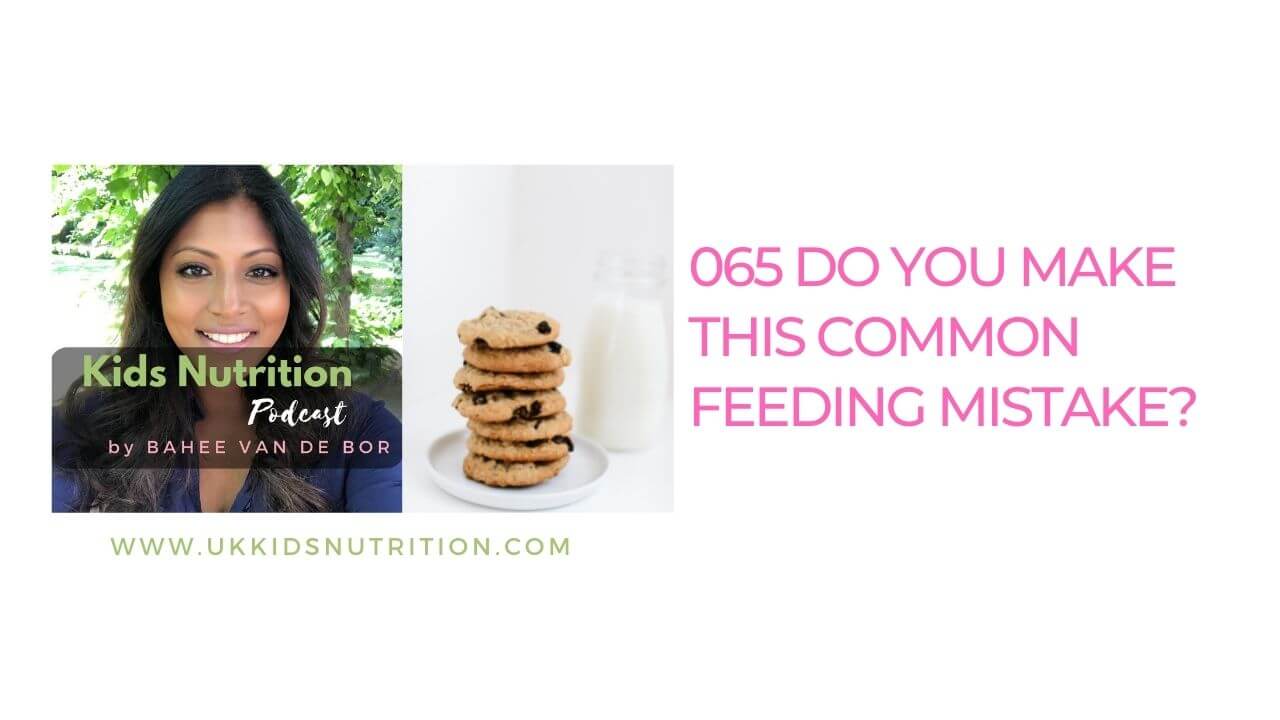As a parent, we worry when our children won’t eat. Should you start to worry whether persisting food refusal in toddlers can continue into adulthood? As a paediatric dietitian and children’s nutritionist, I know all too well how mealtime tantrums and food refusal in toddlers can be worrying. But the question we don’t discuss enough is, can food refusal in toddlers continue into adulthood?
Can food refusal in toddlers continue into adulthood?
Mild picky eating can be common in children but it can present challenges when planning snacks and mealtimes.
It’s generally thought that picky eating reduces with age but less is known about how picky eating impacts young adults.
One study on university students showed that some children continue to struggle with fussy eating even as young adults.
Children who go on to become picky eaters as an adult will have a similar list of preferred foods such as pasta, chicken, fruit, pizza and potatoes.
As a result, they will eat less fibre and vegetables due to the reduced variety in their diet.

How does food refusal in adults impact them?
A brand new study published in October 2021, in the Journal of Nutrition Education and Behaviour studied a group of 500 university students (of which 175 were picky eaters).
They concluded that the students who identified themselves as picky eaters worried about eating out with their friends amongst other daily challenges around eating.
Food refusal in adults can therefore present its own set of challenges such as those listed below.
Trouble finding acceptable foods
Half of the students described challenges in finding acceptable foods to eat when eating out with others or going to a friend’s house and not having many choices. This also affected them when travelling on holiday.
Avoiding foods or not eating
Picky eating adults avoid specific foods or characteristics of food. For example, they might struggle with certain textures of food (think slimy foods like seafood). Many indicated that they would either eat less or not eat at all when eating outside of the home. For example, “I used to go out to eat with friends and half of the time would just drink the water due to my picky eating”.
Difficulties with feeders or other eaters
Picky eating in adults resulted in conflict or disagreement with family members and friends e.g. “my parents would get frustrated with me because I wouldn’t try their meals”.
Or they faced scenarios like “there were awkward comments when I couldn’t eat the same as my girlfriend and their family” or “going out to a restaurant with my boyfriend or girlfriend is challenging”.
The young adult with picky eating worries if they pick a fancy place there won’t be anything that they can eat.
Excessive meal planning
Several noted behaviours such as eating in advance of events or bringing acceptable foods were also noted in the study.
Participants said, “When I eat at a family or friend’s place, I have to bring snacks because I never know if they will have something I will want to eat”.
Some participants discussed asking for separate meals to be prepared for them.
They also had trouble choosing restaurants, or spent excessive time ordering fully acceptable meals: “When going out to eat it sometimes takes me a while to decide what I want or what to tell the waitress to leave off the dish”.
As you can see, food aversion in toddlers can transcend into adulthood. For this reason, it’s important to address food refusal in children early.
To identify the early signs of picky eating, let’s have a look at how fussy eating can present in children.

Why toddlers refuse food?
To answer this, let’s explore what is food refusal first.
What is food refusal in toddlers?
Food refusal is either the refusal of new foods or the refusal of foods that were once readily accepted and eaten.
When babies and toddlers refuse to try new foods, this is usually triggered by the fear response. The fear response is a normal part of a child’s development. In fact, most babies and toddlers go through the food refusal phase from around the age of 12 months but it peaks when toddlers are 18-22 months of age.
This phase is commonly referred to as food neophobia which is an evolutionary response that developed as a way of protecting mobile toddlers from eating poisonous foods.
Our ancestors relied on the colour, smell and overall appearance of food to judge whether food is fresh or ‘off’ to avoid getting sick.
As this is an evolutionary-rooted response, babies and toddlers will find this innate response hard to ignore. Their initial response will be to refuse a new food based on its unfamiliar texture, appearance or smell.
But with regular exposure to the ‘feared’ foods, your baby or toddler will become familiar with them and start to think of the food as ‘safe’.
They will no longer fear the new food. The food becomes familiar and your child will be willing to try the previously refused foods.
Why Toddlers Refuse to Eat and What to Do
By the time your toddler reaches the age of 24 months, they would have outgrown the ‘neophobic’ phase and stopped the ‘refusing to eat’ phase.
If the variety of their diet has been limited, you should start to see them readily accept a bigger range of foods.
But what if your toddler is still refusing to eat and its ongoing power struggles at the table?
Reasons for food refusal in toddlers
There are lots of reasons why your toddler may not be eating.
Here are some reasons why food refusal in toddlers might be common.

Your toddler is practising being assertive
As your child gets older they start to become independent. One way of showing their independence is by refusing to eat at mealtimes.
It can feel difficult at first to get the balance right between letting your child enjoy independence and maintaining mealtime boundaries.
If mealtime tantrums and food refusal is starting to take over your day, then give your child a few ‘jobs’ in readiness for mealtimes to help avoid power struggles at the table.
For example, make sure that your child can reach for their own cutlery and plates. These should be tucked away in a cupboard that is easily accessible to them.
This way your toddler will feel ‘in charge’ and is able to maintain an element of control and independence over mealtimes.
Other meal-related tasks that toddlers can do include washing vegetables, or helping you portion out some ingredients into bowls.
Give your child some control
Allow your child to self-feed. Make sure that they have the right utensils and cutlery to help them do this.
It’s also important to make sure that they are seated comfortably next to the table so that they are able to reach for a cup of water or anything else that they want to reach on their plate.
We love our Tripp Trapp chair by Stokke that has grown with our daughter who is now 6 years old.
At this stage, when toddlers are learning to self-feed, you’ll find that there’s a lot of mess on the table, the chair and even the floor.
Try not to worry if they do end up creating a lot of mess.
It’s perfectly normal. Food mess is also beneficial and helps young children form a positive relationship with foods of varied textures.
So let them experience the smell, touch and taste of foods with their hands and fingers to nurture an ongoing positive connection with foods.

Toddler won’t eat anything but snacks
Have you got a feeding schedule in place? If you are preparing your child for nursery or school, then try to mimic a feeding schedule that will be reflective of a normal nursery or school day.
For example, make sure that meals and snacks are served at approximately the same time each day.
This way your child will be able to regulate their appetite knowing that lunch is served around noon and a snack is served 2-3 hours later.
It is important to include them in the conversation about what is served for meals and snacks.
If you need help with this then my menu planning module inside the ‘Fussy Eating Solutions’ video course will help.
Healthy snacks for toddlers
When planning snacks for your toddler, keep it simple.
Choices like fruit served with a pot of nut butter or cubes of cheese will provide carbohydrates, protein and a dose of healthy fats to keep hungry bellies suitably filled.
Fruit on its own might not be enough for some children. But do watch out for hidden sugars in prepackaged snacks targeted for young children.
See ‘Ten Healthy Snacks For Kids That Are Quick And Easy’ for more ideas.
Division of responsibility
It can really help to include your toddler in grocery shopping, meal preparation and serving of meals.
But ultimately as parents, your role is to provide nutritious meals which means you get to decide what gets served at mealtimes (without catering to your child’s likes and dislikes).
You can still include your child in the decision-making process.
For example, you can give your child a choice of two things and ask them to decide what they’d like to eat for lunch.
It’s important to then follow through with your decision and not offer a ‘rescue meal’ if your child changes their mind.
If you are struggling with mealtime tantrums and food refusal in toddlers and would really like to enjoy calm and peaceful mealtimes then join my small group coaching ‘End Mealtime Battles’.

Your child isn’t hungry
This may come as a surprise but children’s appetite does vary depending on what they’ve eaten previously and their activity levels.
If they skipped a meal and then filled up on snacks just before mealtime, they really won’t have an appetite for food.
This is exactly why a feeding schedule and routine are important.
It will help your child learn to regulate their appetite and come to the table hungry and ready to eat.
If your child still refuses to eat then it could be that they really are not hungry.
It’s perfectly fine to let them eat the amount of food that feels right for them.
As per the principles of the division of responsibility, continue to offer your child nutritious meals and snacks.
But let your child decide how much to eat. There’s more information on this inside my video-based course Fussy Eating Solutions for parents.
Food prep for toddlers
You shouldn’t be preparing separate meals for your toddler despite what all the children’s recipe books out there make you believe.
Plan one family meal that will feed the entire family (including your toddler).
Help your toddler become familiar with family foods by getting them involved in food preparation.
For example, invite your toddler into the kitchen and give them specific tasks. They can wash the vegetables, stir using a wooden spoon or coat fish and meat with breadcrumbs.
The more engaged they are with the foods they are about to eat, the more likely that children will eat that food.
Pressure to eat
The pressure of any form can be an appetite slayer even for young children.
If you’ve followed the advice described above, then you won’t need to ‘bribe’ the children with dessert or pressure them to ‘take another bite’.
If you are finding that you are falling into a trap of pressuring or bribing your child to eat, it may help you to understand your feeding personality and how it impacts your child’s relationship with food.

Bottomline
Picky eating and food refusal in toddlers can continue into adulthood if untreated. If you are ready to take action then join Fussy Eating Solutions, which is a result-based 1-2-1 coaching programme. You’ll get a robust step-by-step framework to solve picky eating so that you’ll no longer have to worry about your child’s nutritional intake or keep wasting time on strategies that just don’t work. Click here to join.
Let Me Help
Would you like to meet a children’s dietitian who has successfully helped families solve their nutrition problems from around the world?
No matter what you are worried about, I’ll help you manage these with confidence.



